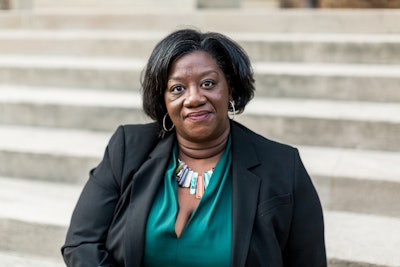Dr. Tressie McMillan Cottom wants her work to meet people where they are, and to do so, she uses many platforms and intersects multiple disciplines. However, her strategy is simple; she starts with culture.
“Culture is this place where we try to make sense of a really complex world in our own little local context,” says McMillan Cottom. “Fundamentally, I want my scholarship to matter to people's lives and to do that, it's really helpful if I don't lose sight of how people are living.”
 Dr. Tressie McMillan Cottom
Dr. Tressie McMillan Cottom
McMillan Cottom received her Ph.D. in sociology in 2015 from Emory University’s Laney Graduate School and her Bachelor of Arts degree in English and political science from North Carolina Central University.
She says the things that resonated with her in graduate school were theoretically sophisticated and mattered to people.
“There’s a reason why Du Bois is Du Bois,” she says. “He's like this really great methodologist and this really sophisticated theorist, but, you know, love him or hate him, Du Bois absolutely understood his work as needing to talk to other people.”
When McMillan Cottom started graduate school, she had more questions than disciplinary allegiances, which led her to the intersection of the sociology of education and political economy. At this intersection, McMillan Cottom emphasizes the importance of storytelling in reaching people, and she has held this skill closely throughout her work.




















